This is professor Charlie Veron, former chief scientist of the Australian Institute of Marine Science. He's been raising hell this year as the Great Barrier Reef endures the worst bleaching event in its history, with 22% of corals dead according to government agencies.
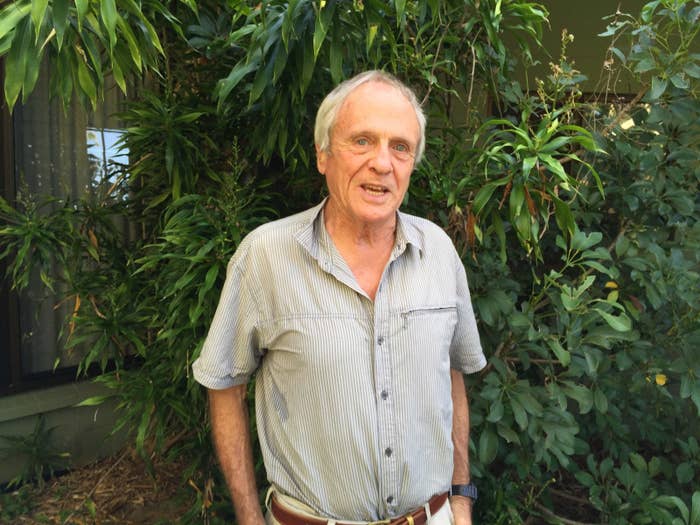
In April, Veron, who personally discovered at least 20% of the world's coral species, travelled to Canberra to demand government action to save the reef.
Veron says he tried to meet with Australia's environment minister, Greg Hunt, who he claims lacks a basic understanding of the long-term dangers the reef faces as ocean temperatures warm, but Hunt wasn't available.
“Greg Hunt is just completely ignorant of this whole thing," he told BuzzFeed News. "I’m gobsmacked about some of the things he has said."
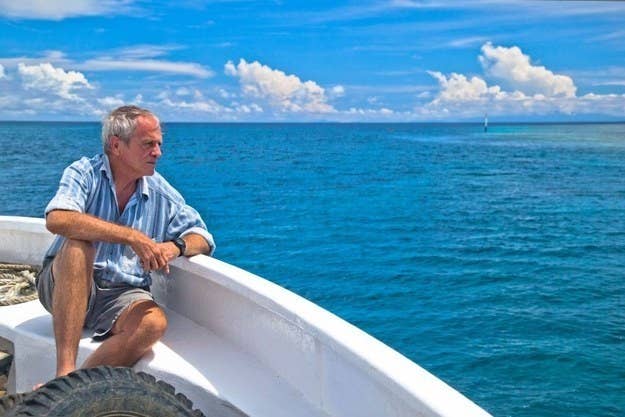
After his trip to Canberra, Veron says Hunt asked him to stop criticising the government.
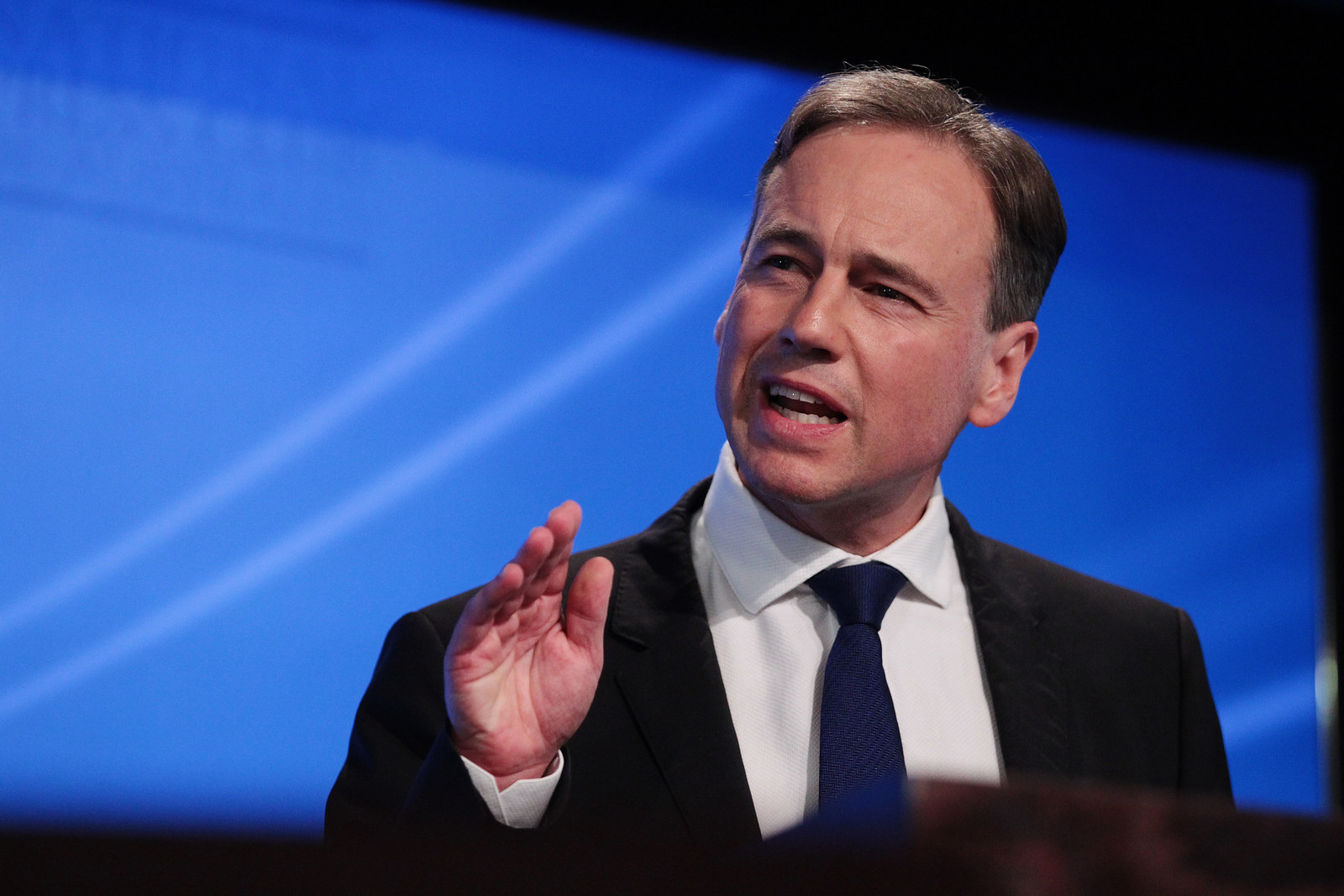
After speaking with the minister by phone, Veron sent him this email.
On 20 Apr 2016, at 8:40 AM, John (Charlie) Veron wrote:
Hi Greg,
I have recently had 17 press interviews since the bleaching on the GBR started and now American journalists are joining in. This is an unwanted distraction from my work (a website about coral) but has happened because, over the past 20 years, I have taken the trouble to get my facts right about the effects of climate change on coral reefs, something widely recognised by scientists. (I have a clean sweep of Australian awards and the highest that America bestows.) My deep connection with the GBR gained a public face after my 2008 book A Reef in Time, the Great Barrier Reef from Beginning to End. Unfortunately, a decade on, the predictions in that book remain on track. I am introducing here myself because I feel I should, and need to.
I was acutely aware of the disconnect between politics and climate change science during the Howard and Abbott government years. Certainly we have moved on from there, but now, on a finer scale, it has arisen again. I am very much aware of the matters you referred to here and in our phone conversation. Your political perspective and mine as a scientist are at odds on many points.
The approval for Adani to go ahead, although so widely politically supported, is riddled with negatives and, unfortunately, highlights the disconnect.
I have never been backward in coming forward, which is why AIMS made me their Chief Scientist (and is also why I resigned from that job). Now I do what I can for the GBR, that is my sole motive. We both create friends and enemies on that front, I wish it were otherwise, but certainly I will make sure that you get any ideas that come my way. Closing the northern GBR to all fishing is being discussed amongst scientists now, something that needs a lot of thought. Re-vamping GBRMPA [the Great Barrier Reef Marine Park Authority] is obviously another, given the demise of their scientific capacity.
I hope you enjoy the final episode of the Attenborough series. As usual it is balanced and is as accurate as it can be.
Best wishes,
Charlie
Veron received the following reply from Greg Hunt, which he then replied to, with his responses in bold.
From: Hunt, Greg (Private)
Sent: Wednesday, 20 April 2016 9:19 AM
To: John (Charlie) Veron
Subject: Re: RE:
Many thanks Charlie,
I am sorry that you feel as if your multiple international media commitments are interfering with your work. This is however, on every factual assessment, a matter for your own management.
On 20 Apr 2016, at 10:52 AM, John (Charlie) Veron wrote:
Indeed yes. I give priority to the immediate issues concerning the GBR, as you have seen, but at cost to the most important coral conservation program ever - I will make sure you are notified when it goes public. I spend about two days a week just getting enough funding to keep it going.
I am disappointed that you believe there is nothing that can be done to mitigate the effects of the current bleaching. That sits at odds with your public statements of Government not listening to you. Having specifically sought your advice you declined to provide advice on immediate actions to assist with the current event. This is both surprising and disappointing.
I am fortunate however that GBRMPA has been active.
On 20 Apr 2016, at 10:52 AM, John (Charlie) Veron wrote: You asked me what can be done - GBRMPA needs scientists back. Obviously I know the staff well.
I would note that one leading scientific voice associated with your study declared that "the worst was over" approximately 2 months ago. This was scientifically incorrect and while it was rejected by myself on the advice of GBRMPA and the BOM, I am surprised that there has been no retraction apology or correction.
On 20 Apr 2016, at 10:52 AM, John (Charlie) Veron wrote: Maybe this was a media statement? I do not know what your refer to. Two months ago I said that the El Nino cycle was or appeared to be weakening. It was, and it did. If it went the full gamut we would have much worse bleaching than what we have now. Two months before that I said (on ABC television from Townsville) that we were in for the worst bleaching in history. I don't think in all this that I have much to retract, apologise for or correct. I interpreted what the science said and that turned out to be accurate.
This is a severe Pacific wide event. As you would well understand the best course of action involves local and global action. Local to improve resilience by improving water quality and reducing crown of thorns activity. It was indeed for the practical action of the Reef 2050 plan and Reef Trust that the World Heritage Committee declared Australia a global role model for managing world heritage properties in July of last year.
On 20 Apr 2016, at 10:52 AM, John (Charlie) Veron wrote: Yes, that is the politics of it. Hence my reference to a disconnect with science. The only action that will effectively mitigate the demise of reefs is reduction of the amount of CO2 in the atmosphere and that means keeping the sources of the CO2 in the ground. Water quality and starfish control help resilience, but not the root cause.
You also refer to a Queensland State Labor inland mining project (approximately 300 km inland). I would note that the federal role is confined to implementation of the national environment law. By law this is a judicial type legal assessment of the listed matters of national environmental significance.
The welfare of the GBR is obviously an enormous matter of national and international importance. We have a world heritage system that connects with national governments as does so much else. If I have that wrong, something needs to change as the future of the GBR is not a Queensland matter. A recent in-depth study had the GBR at the top of national concern.
I would encourage you to direct all policy concerns to the Queensland Government that has advocate and advanced the project.
On 20 Apr 2016, at 10:52 AM, John (Charlie) Veron wrote: Of course I connect with the Queensland Government.
Alternatively you may wish to raise the issue of the right to development with the Indian Government. It is a matter of record that, contrary to your statements on emissions from the project, the provision of electricity to many of the poorest people in the world from this and other sources was included in the Indian Government's international commitments at the Paris conference.
On 20 Apr 2016, at 10:52 AM, John (Charlie) Veron wrote: If you have a different factual proof in Indian Government projections I would be deeply interested and would ask for that evidence as a matter of urgency.
Let me be absolutely clear. We both share a passion for the Reef.
We both share concerns about the effects of climate change on every Reef.
I hope we both support the Reef 2050 Plan, the Reef Trust and the once in a century decision to ban capital dredge disposal in the GBRMP for all time. I know I do.
I would invite you to be more active in practical proposals for immediate action to assist the Reef and to join in the active work of former Chief Scientist Ian Chubb who is doing just that.
On 20 Apr 2016, at 10:52 AM, John (Charlie) Veron wrote: With the rate of climate change induced mass bleaching we are experiencing there won't be any reef by 2050. Where is this in the 2050 plan? That aside, there is a great deal of pure politics in what you say here. What governments say, and this includes you, is very often at odds with what science says. I am a big picture scientist - that is my role - it is widely appreciated and is an important one. No so?
Regards,
Greg
Veron received the following reply, from Greg Hunt's iPhone:
Many thanks Charlie.
I welcome any practical proposals and issue an open invitation I that front.
I also issue an open invitation for you to contact the Indian Government to make your views known to them.
In the meantime we will continue to meet and beat our targets and push for global implementation of the Paris Agreement.
Cheers,
Greg
Sent from my iPhone
Australia's environment minister has been working hard in recent weeks to defend the government's record of managing the reef and reassure Hollywood stars that everything's just hunky dory.
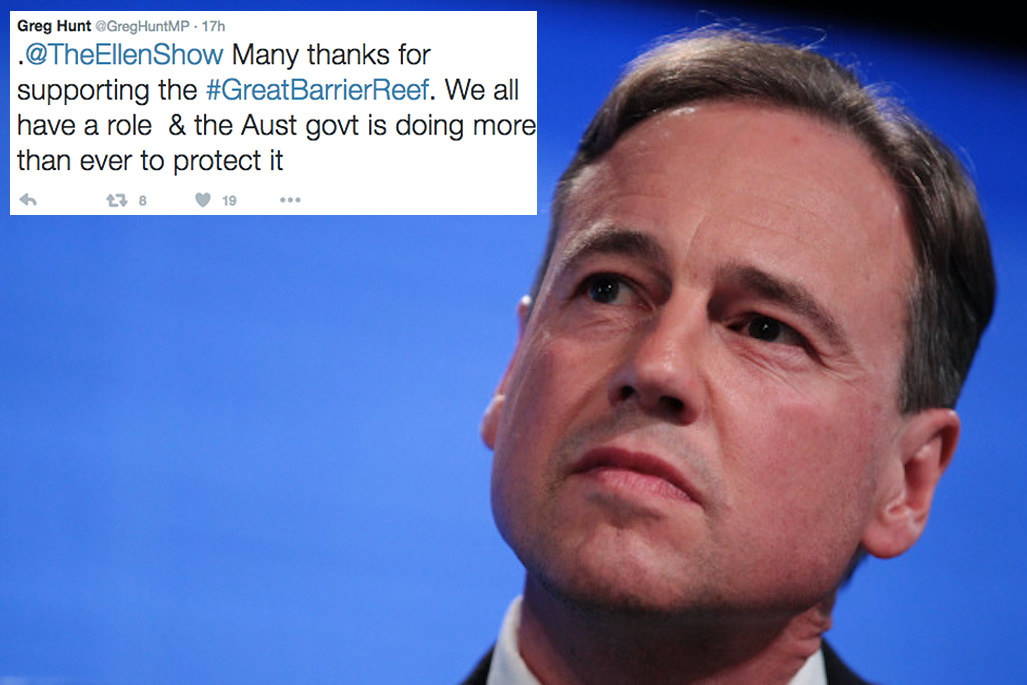
Labor has promised $500m over five years to boost scientific monitoring and water management of the Great Barrier Reef. The Turnbull government has pledged $171m to preserve the reef, and $6m for an extra vessel to tackle crown-of-thorns starfish in tourist areas.
Veron, known as the "Godfather of Coral", has a clear message for voters:
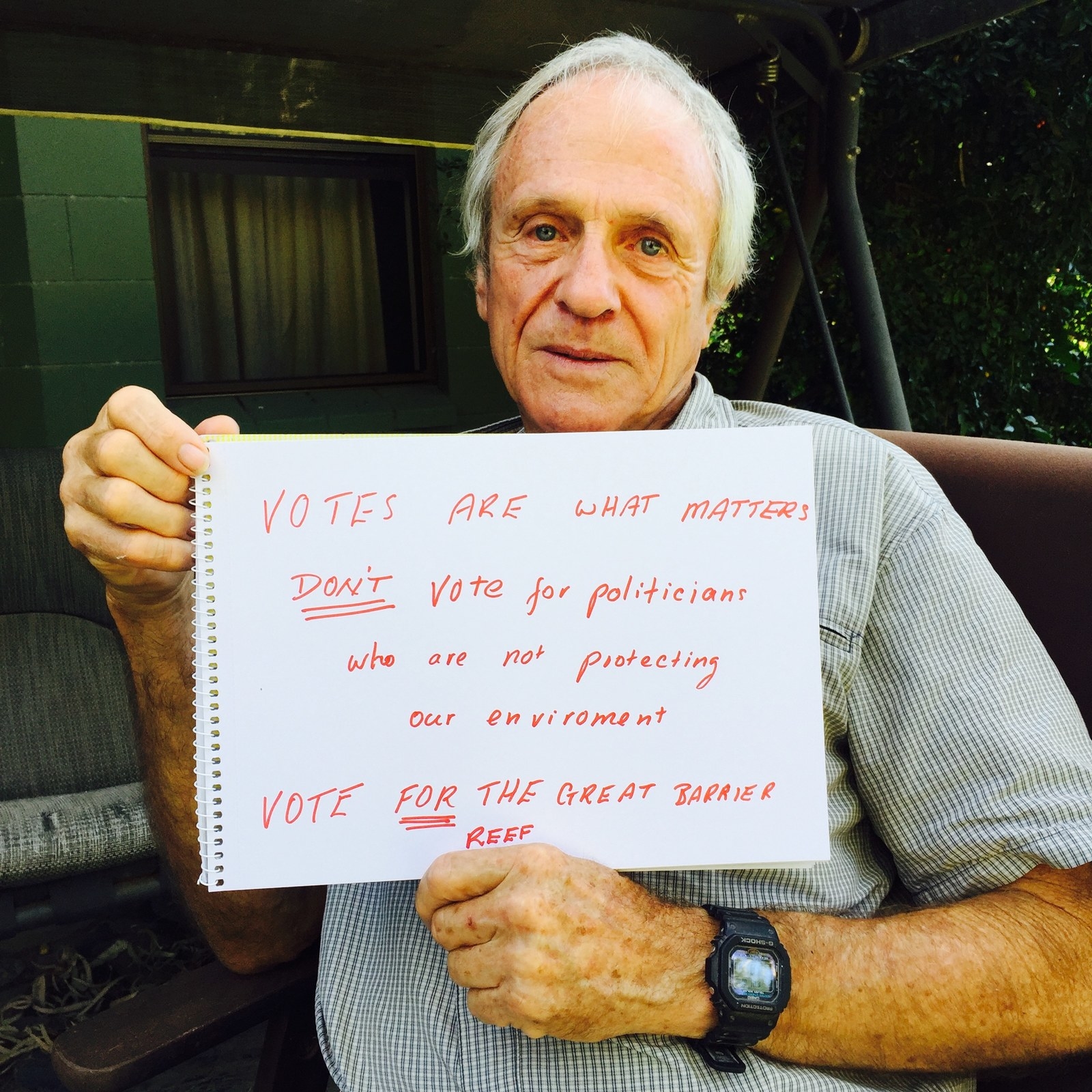
UPDATE
A spokesman for Greg Hunt says this report does not reflect the numerous emails the minister has had with Mr Veron.
"The Minister made it clear to Mr Veron on multiple occasions that he welcomes his views and advice, and is happy to discuss.
And indeed an open invitation remains to provide advice on water quality – a process which many scientists have been involved in."
Mr Hunt's department provided the following correspondence:
-----Original Message-----
From: Hunt, Greg (Private)
Sent: Tuesday, 19 April 2016 12:59 PM
To: John (Charlie) Veron
Subject:
Hi Charlie,
Many thanks for your message and greatly appreciated.
I am happy to talk at any time.
I would genuinely encourage you to put forward suggestions and to feel free to raise proposals.
It is in my view though very important to acknowledge the outcomes of the Paris conference which committed each country, including India, to a deeply accountable set of targets.
In the case of India, they did include their projected future growth including different new electricity projects. In short these have been included as a matter of science and accounting in their national projections.
In terms of the Reef any and all ideas are deeply welcomed.
Regards,
Greg

